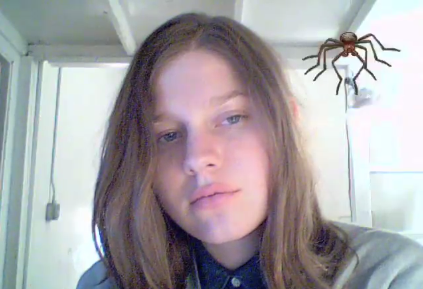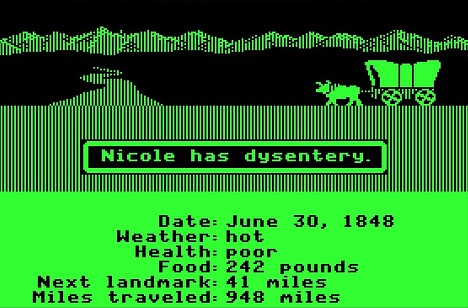Presented by Jason Scott, adjunct archivist at Internet Archive, Kari Kraus, assistant professor at the University of Maryland, and Nick Hasty, director of technology at Rhizome.
The "Preserving the Creative Culture of the Web" panel at SXSW addressed an interesting question: "Should web sites and artifacts be treated like works of art or architecture?" Our three panelists discussed how these artifacts, along with video games, internet forums and user-generated forums, have cultural relevance, and it's important to save them.
"The internet community as a whole hasn't done a great job of doing that," Hasty said.
Hasty's organization, Rhizome, established in 1996 as an email list, is a non-profit dedicated to digital art and culture. Their archive for digital art, ArtBase, was established in 1999, and now has 2,500 artwork records, with more than 520 artworks archived. What constitutes art work? Internet art is any kind of production when the intent behind it has an art historical context.
For example, Lev Manovich's digital film project "Little Movies" is a project that went on for a couple years and dates back to 1994. It's now preserved on ArtBase, and is treated with the care and attention that would be given to any other work deemed historically relevant. There were a couple assets missing, so Hasty reached out to Lev Manovich, the creator, and now they have a complete record of it.
2007's "VVebcam" by Petra Cortright is a similar, more recently archived work. In it, the artist uses a web camera by herself, scrolling through the default effects that come with web cams, resulting in a commentary about how we consume video online. "Vvebcam," which originally lived on YouTube, was taught in universities and became an important reflection of our times. But since it had 200 or more tags associated with it, last year YouTube took "Vvebcam" down because it violated their spam levels. This is just one of many problems facing art on the internet, the biggest being the potential to get lost in the ether.
However, that is becoming less of a problem, as more artists turn to the internet to store their work.
"The real stuff we have trouble with is stuff created 15 to 20 years ago," Hasty said.
 A screenshot of "VVebcam"
A screenshot of "VVebcam"
Video Games
Kraus, a prim, spirited woman with a passion for gamers, takes it over to discuss preserving video games and virtual worlds. Her first project, through the University of Maryland, was funded by the Library of Congress, and archives a set of eight video games, such as "Mystery House," the first work of interactive fiction with graphics.
Their other project, funded by the Institute of Museum and Library Services, is ongoing and for educational purposes. For example, it includes "Oregon Trail," "The Typing of the Dead" and "Carmen San Diego." You can't save all the features of every game -- you're going to lose information, Kraus explains, as they don't have access to proprietary features like source code. But they try to find the most salient features and make sure those remain intact. "This has proven to be incredibly difficult," she added.
Kraus went on to espouse the value of gamers. She wrote an op-ed in the New York Times late last year, "When Data Disappears," that gained good reactions from those who were happy to see the attention she paid to gamers, praising her "curatorial activism" of sorts. Kraus' thinking is in line with game designer/researcher Jane McGonigal, who believes that gamers hold creative solutions to some of our most urgent social problems, making it all the more vital to save their work for posterity.
 A screenshot of "Oregon Trail"
A screenshot of "Oregon Trail"
Archiving The Internet
Scott takes the mic next, and immediately begins pacing the room.
"How many of you know who I am?" he asks. A fair number of hands shoot up. "The rest of you are going to get a big lesson in life."
Scott discovered early on he was an archivist, when his parents split up and the only constants in his life were his blanket and dog. "I learned that nothing is permanent," Scott said.
In a society that's so fragmented, this becomes even more of an issue. Within the insular world of SXSW, we have all these things going on in different conference rooms that we don't get to go to them because we decided to go to this one, Scott boomed into the mic. But all of them might have value. In our culture as a whole, we have so many things available now, but the potential to lose them is just that much greater, he explained.
Scott's project, the Internet Archive, is less like Art Base and the University of Maryland's work in that it's not curatorial -- it's all about preserving as much as possible for the future. For example, when Geocities moved to Yahoo, in 60 days the Internet Archive downloaded a lot of it and put it up on a torrent on Pirate Bay. It was incredible to Scott that a 15-year anthropological study, a snapshot of us going online and becoming what we are now, was in danger of being lost because "someone wanted to move something from column A to column B."
"Our data is more and more becoming us," Scott said. If someone slaps someone in the grocery store, we all know about it. Essentially, we've developed a hive mind mentality.
"You're a bee. It's ok," Scott said.
The advantage of this is that we all benefit from it, and share information better, faster and quicker. But along with that comes this idea of preserving what we've done.
Others are more skeptical about how this can actually get done in a real way, given the sheer amount and haphazardness of the material out there. Science-fiction author Bruce Sterling, (who spoke eloquently at the "Euro Tech Art" panel) thinks digital preservation is a fool's errands, Kraus explained.
He sees what's happening in the larger political climate -- higher education under attack, museums with less funding, and so on -- and doesn't think projects like Kraus' are sustainable.
"Sterling is smart to point that out… and I don't know what the answer is," Kraus said. "We're going to have to develop entirely new skill set."